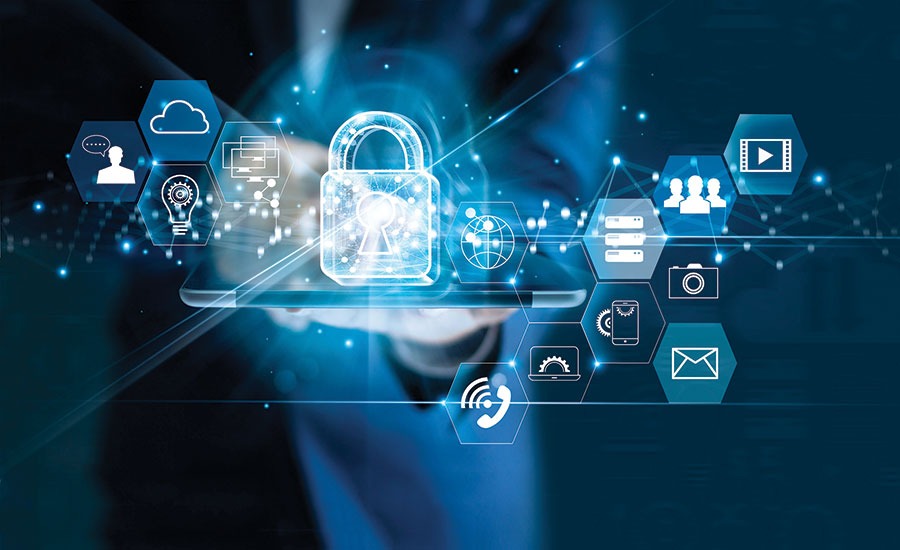Internet is a basic necessity in today’s world and so is keeping an online presence. Our personal, social, and work lives are highly impacted by our online presence. But being online comes with its risks. We tend to ignore it all in the rush of carrying out our online activities but the threat is still there.
Cybersecurity commonly known as internet security is a set of practices and processes to protect online data from unauthorized access by hackers or cybercriminals. The reason why internet security holds so much importance is because it saves you from data breaches and malware by backing up your data and securing cloud storage.
When you have various accounts and devices accessing the internet, your risk of falling into online threats increases. In this article, we are going to share some helpful tips with you about how to stay safe online.
Before we get into the tips make sure you have a secure internet connection, to begin with. If not then we suggest you try out Xfinity internet deals as they come with device and service protection for a minimal fee so you can save yourself from technical malfunctions and connectivity errors. Having a secure internet connection is the first step you can take to securing your online experience.
Once you have sorted a secure internet connection, let’s get started with the tips:
Keep Antivirus Software Updated
Install antivirus software on all the devices you access the internet from and keep them updated. Antivirus software protects your devices again spam attacks and all other kinds of malware. Not only do we recommend keeping your antivirus updates, but keep all the applications on your devices up to date to protect them from getting infected by any online spam.
Updating your devices will detect if any external file or virus is infecting your data and allow you to take early security measures. Even if your device comes with a built-in antivirus, don’t completely rely on it and consider using a third-party solution as the better at protecting our information and keeping you secure from the smart cybercriminal moves.
Avoid using public Wi-Fi for browsing
Public Wi-Fi is a big NO when you’re considering internet security the weaker and unencrypted connection allows hackers to position themselves between you and the connection point. They can use the unsecured network to distribute malware.
If you try sharing files across public Wi-Fi, chances are that a hacker can easily plant infected software on your computer. Theft of personal information, packet sniffing, and session hijacking are other threats attached to browsing over public Wi-Fi.
Use strong passwords
It might be hard for you to remember a different password for each of your online accounts but it is highly recommended for your online security that you use a unique and different password for each of your accounts. Stealing information and trying a bunch of usernames and password combinations is not a difficult job for hackers these days.
It’s always better that you use a strong password for every single online account you have. If you find it difficult for yourself to create a unique password for different accounts you can try using a password manager that is free and easily available online.
The password manager will use a decent amount of upper case letters, lower case letters, numbers, and symbols to generate strong passwords for you. Not only it will generate better passwords for you, but it will also manage your logs and help you log in automatically saving you time and struggling to type in login details all the time. It is considered to be a safe option that increases your productivity and efficiency with online accounts.
Use Vpn Over Networks You Don’t Own
We connect to the internet on the go all the time. No one can stay at home all the time or come back to where they have a personal secure online network. To deal with the urgency you can use VPNs while browsing over Wi-Fi you don’t own.
For instance, when you go to a mall and connect to a free Wi-Fi network you don’t know anything about the security status of that connection. You use that connection to send or download files or even for money transactions. All these activities require are very private and contain your confidential information.
Rather than having blind trust in the Wi-Fi owner you should ensure your online security at your end and use a VPN, it will encrypt your internet traffic routing it through a server owned by the VPN Company.
Use Two-Factor Authentication
Two-factor authentication can be a tough procedure to follow but it makes your accounts absolutely safe. It adds on a layer of security and authentication that is more than just a username and password.
If the accounts that contain your personal information and data offer your two-step authentication, you must enable it. Password is one thing that is there to protect, you can add a fingerprint or use facial recognition for authentication. Dropbox, Gmail, and Evernote are some of the online services that offer two-factor authentication.
Wrapping It Up:
Internet security is something you should never take lightly. Rather than falling into the trap of any cybercriminal sniffing your data and personal information, you should take safety measures to keep your online data secure. Always use a safer connection to browse and never click on links you receive from unknown senders. You never know where a single click could leave you.
